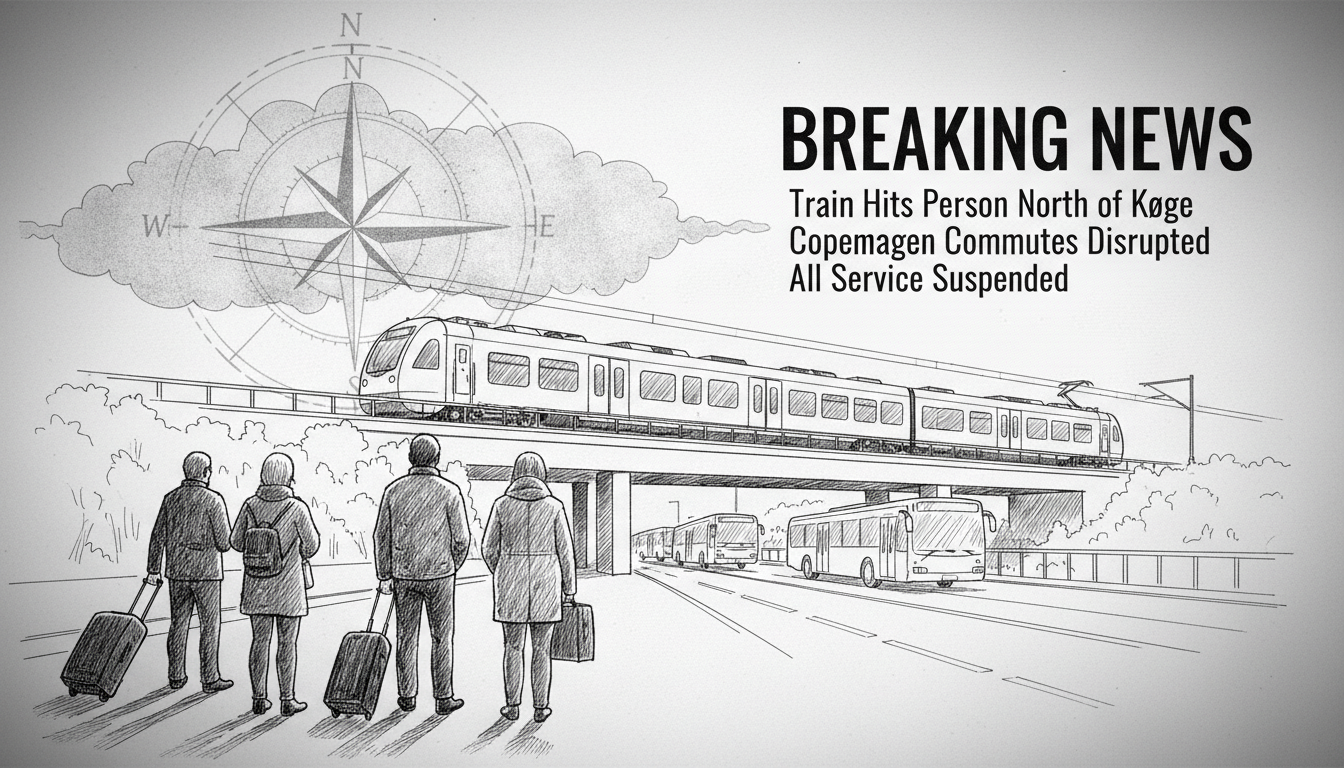A train struck a person near Karlslunde during midday Monday. The incident occurred between Køge Nord Station and Copenhagen Central Station. All train service on this route has now stopped. Authorities confirmed the suspension affects thousands of daily commuters.
Rail officials immediately halted operations following the accident. Emergency services rushed to the scene. The disruption impacts one of Denmark's busiest rail corridors connecting Zealand's southern regions with the capital. Commuters face significant delays during afternoon travel hours.
This marks another serious incident on Denmark's railway network. Similar accidents have occurred in recent years despite safety improvements. The Danish rail system maintains strong safety records by international standards. But even single incidents create major transportation chaos.
Rail authorities must now investigate what happened. They will examine safety protocols and potential infrastructure improvements. Such investigations typically take weeks to complete. Meanwhile, replacement bus services are operating between affected stations.
The disruption highlights transportation vulnerabilities in the greater Copenhagen area. Many residents rely heavily on train connections for daily commuting. Incidents like this demonstrate how quickly regional mobility can deteriorate. The economic impact extends beyond delayed travelers to affect businesses and logistics.
Danish railway safety procedures require thorough review after such events. The transport ministry will likely face questions about prevention measures. Past incidents have led to improved signaling and crossing protections. This latest accident may prompt further safety evaluations.
Commuters should expect extended disruptions throughout the evening. Rail service cannot resume until authorities complete their initial investigation. The recovery process often takes several hours even after clearance. Travelers should monitor official channels for service restoration updates.
Rail accidents remain relatively rare in Denmark compared to European averages. The country invests substantially in railway maintenance and modernization. However, Monday's incident shows that complete prevention remains challenging. The human and operational costs of such events ripple through the transportation network.

